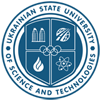Problems and Prospects of Information Interoperability of Academic Libraries in Central Asia
DOI:
https://doi.org/10.15802/unilib/2024_318415Keywords:
academic librarianship, Central Asia, library cooperation, library consortia, information and library infrastructure, corporate networkAbstract
Objective. The article is devoted to the analysis of the current state and prospects of information interoperability between academic libraries in Central Asia (CA). Methods. Publications on the topic of information and library interoperability, including in CA, have been studied, experience in the area has been analysed and summarized. Results. The authors proposed a comprehensive and systematic approach and methods to develop interoperability of academic libraries in CA. Conclusions. Summarizing the international experience of interlibrary cooperation at the regional level, it should be recognized that it is successful provided that there is a comprehensive approach to its provision, that is, the relevant bodies for planning, coordinating and monitoring information interoperability should be created and functioning, library personnel with relevant competencies should be trained and involved in the work, the relevant software and hardware and infrastructure should be available.
References
Arch, X., & Gilman, I. (2017). Innovating for impact: the next evolution of library consortia. Collaborative Librarianship, 9(4). Retriеved from https://digitalcommons.du.edu/collaborativelibrarianship/vol9/iss4/4 (in English)
Battalova, S. (2012). Kyrgyz libraries community – co-operation for development: New challenges and new approaches. Bilgi Dünyasi, 13(1), 257-266. doi: https://doi.org/10.15612/BD.2012.178 (in English)
Bostick, Sh. L. (2001). Academic library consortia in the United States: an introduction. LIBER Quarterly, 11(1), 6-13. doi: https://doi.org/10.18352/lq.7626 (in English)
Bugubayeva, R. O., Bespayeva, R. S., Berezyuk, V. I., & Erjanov, M. S. (2021). Transformation of higher education in the conditions of informatization and digitalization. Bulletin of "Turan" University, 3, 272-277.doi: https://doi.org/10.46914/1562-2959-2021-1-3-272-277
Carpenter, T. (2022, April). Standards are a key element of library collaboration networks. NICO. Retrieved from https://www.niso.org/niso-io/2022/04/standards-are-key-element-library-collaboration-networks (in English)
Corradini, E. (2013). International collaboration for a master’s degree program in library and information science. In A. Woodsworth, & W. D. Penniman, (Eds.). Mergers and alliances: the wider view (Vol. 36, pp. 139-184). Leeds, England: Emerald Group Publishing Limited. doi: https://doi.org/10.1108/S0065-2830(2013)0000036009 (in English)
Emmelhainz, C. (2020). Educating the Central Asian librarian: considering the international MLIS in Kazakhstan. In R. Alenzuela, H. Kim, & D. Baylen (Eds.). Internationalization of library and information science education in the Asia-Pacific region (Chap.1, pp. 1-32). IGI Global. doi: https://doi.org/10.4018/978-1-7998-2273-8.ch001 (in English)
Ghosh, M. (2011). Consortia and cooperation in libraries: a review of literature. doi: http://doi.org/10.13140/2.1.4960.0648 (in English)
Kumar, A., & Rath, P. (2017). Library consortia: promises access to the world of information. e-Library Science Research Journal, 5(7), 1-6. Retrieved from https://oldlsrj.lbp.world/ArticleDetails.aspx?id=773 (in English)
Lapo, P., & Davletyarova, N. (2020). Internationalization of library and information science education in Central Asia: the case of Kazakhstan and Kyrgyzstan. In R. Alenzuela, H. Kim, & D. Baylen (Eds.). Internationalization of library and information science education in the Asia-Pacific region (Chap. 9, pp. 207-224). IGI Global. doi: https://doi.org/10.4018/978-1-7998-2273-8.ch009 (in English)
Lapo P., Makhmudov G., & Rakhmatullaev M. (2020). Internationalization of library and information science education in Tajikistan and Uzbekistan: implications in Central Asia. In In R. Alenzuela, H. Kim, & D. Baylen (Eds.). Internationalization of library and information science education in the Asia-Pacific region. (Chap. 10, pp. 225-245). IGI Global. doi: https://doi.org/10.4018/978-1-7998-2273-8.ch010 (in English)
Moghaddam, G. G., & Talawar, V. G. (2009). Library consortia in developing countries: an overview. program. Program, 1, 94-104 doi: https://doi.org/10.1108/00330330910934138 (in English)
Rakhmatullaev, M. A. (2022). Kooperatsiya bibliotek Srednei Azii kak vazhnii aspekt razvitiya regiona INFOLIB, 2. doi: http://doi.org/10.34920/2181-8207/2022/2-001
Rakhmatullaev, M., & Hedrich A. (2024). Academic libraries of Uzbekistan: challenges and development prospects. Slavic & East European Information Resources, 24(4), 242-257. doi: http://doi.org/10.1080/15228886.2024.2312686 (in English)
Tastankulov, E. S. (2020). Biblioteka i informaciia v epokhu “bolshix dannyx”: zarubezhnyi opyt i kazakhstanskie realii. Informatsiya i Obrazovaniye: Granitsy Kommunikatsiy INFO, 12(20), 59-61. Retriеved from https://cyberleninka.ru/article/n/biblioteka-i-informatsiya-v-epohu-bolshih-dannyh-zarubezhnyy-opyt-i-kazahstanskie-realii








